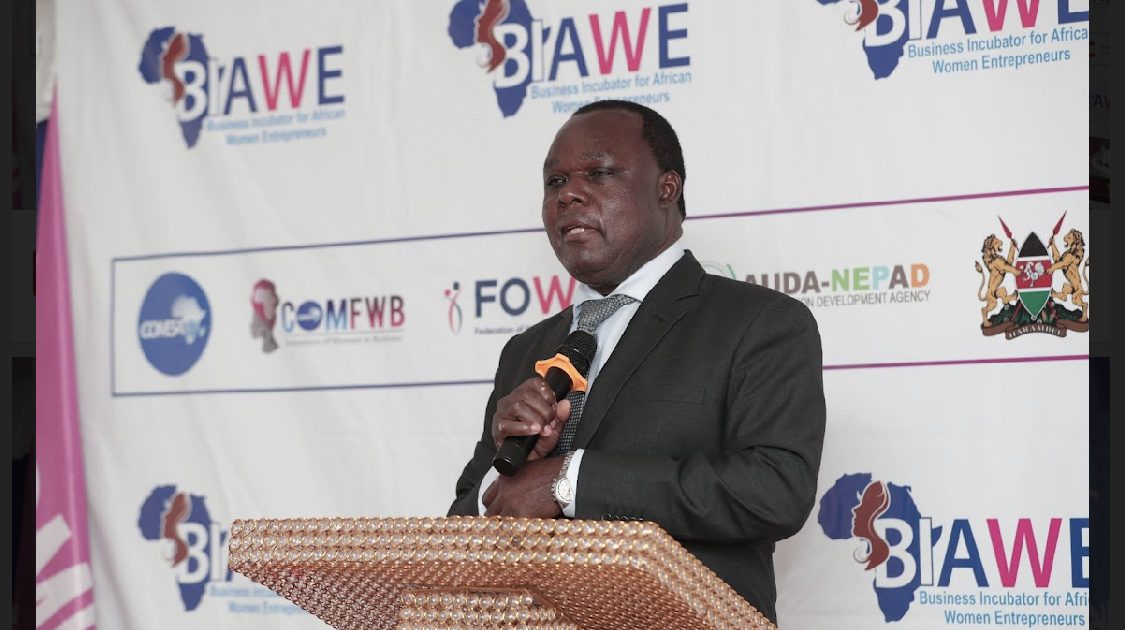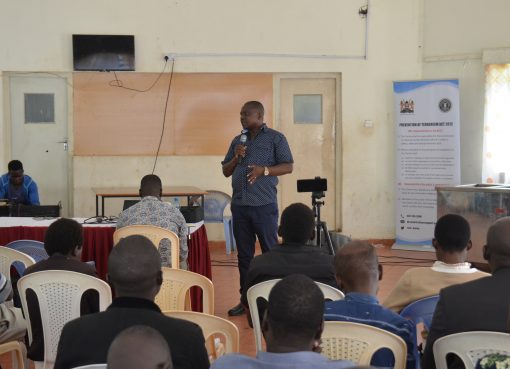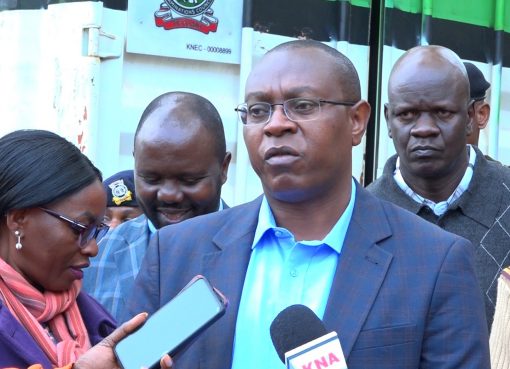The Comesa Federation of Women in Business (COMFWB) has launched Phase 2 of the Business Incubators for African Women Entrepreneurs (BIAWE 2).
This follows the successful implementation of BIAWE Phase 1 with the purpose of addressing some of the challenges faced by women in small and medium-scale enterprises.
Speaking during the launch, Principal Secretary (PS) for the State Department of Industry, Dr. Juma Mukwana, said that he was proud to have KIRDI take part in the second phase of the project as the ministry continues to play a pivotal role in promoting growth and development of micro, small, and Medium Enterprises and the gains that continue to accrue in job and wealth creation in the country.
“We highly appreciate the collaboration that enabled the completion of the first phase of the BIAWE Project: COMESA/COMFWB as key implementing partners through the Federation of Women Entrepreneurs Kenya (FOWEK), African Union Development Agency-NEPAD (AUDA-NEPAD), and the Spanish Cooperation. Your support played a key role in supplementing government funding towards enterprise development and providing project management expertise necessary for successful implementation of the project activities,” Dr. Mukwana said.
He revealed that Phase I of the project focused on the areas of food and textile technologies, which are identified as priority areas in the industrial development policies of the Government of Kenya.
“I strongly believe that the 40 women enterprises that benefitted from the BIAWE Project will continue to thrive and mature into sustainable and large enterprises and will, in turn, contribute to creating jobs and contributing to local, regional, and global development agendas such as the Bottom Up Economic Transformation Agenda (BETA), Kenya Vision 2030, African Union Agenda 2063, and United Nations Sustainable Development Goals,” the PS added.
“We as a country have a strategy to expand the contribution of the manufacturing sector to GDP from the current 7.5% to 20%. This is being done through various strategies, which include investments in industrial research, innovation, and commercialization, and enabling the growth of Micro, small, and Medium Enterprises (MSMEs),” Dr. Mukwana explained.
He noted that The BIAWE project, which supported women’s enterprises, was therefore well aligned with national goals, and “receiving news of a second phase of the project derives great joy as I envision major strides in the MSME sector.”
At the same time, Ms. Chileshe Mpundu Kapwepwe, Secretary General of COMESA, addressed the challenges faced by women entrepreneurs, including lack of business planning, marketing, and management skills, as well as limited access to business development and financial services due to cultural biases. She stressed the need to bridge these gaps and create an enabling environment for women entrepreneurs to thrive.
“Women-owned enterprises have often been run on a small scale with little prospects for expansion due to a number of challenges facing women entrepreneurs. Besides, most of these women-run SMEs lack the requisite business planning, marketing, and management skills to enable them to become champions of their areas of business ventures,” she highlighted.
She added that COMESA has amplified the industrialization drive through increased investment, industrialization, promotion of gender equality, and the creation of an enabling business environment in the Member States through legal and institutional reforms, and the BIAWE project is one of the initiatives aimed at realising this objective.
She added that based on the success of this pilot phase, the project is being rolled out to other countries within the COMESA region, such as Malawi and Zambia, adding: “We need all other partners to support COMESA and COMFWB in making this programme sustainable and reaching out to other women in Business. We are delighted that the Spanish Government has announced continued support for this programme.”
AUDA-NEPAD Chief Executive Officer (CEO) Mrs. Nardos Bekele Thomas, on her part, said that through the NEPAD Spanish Fund, they stand resolute in their commitment to empower women entrepreneurs and acknowledge that sustainable development can only be achieved with the full participation and inclusion of women.
“We are honoured to present equipment and related servicing parts to BlAWE Incubation Centres on behalf of COMESA, and today we are handing over bakery equipment, juice-making machines, and sanitary pad-making machines to KIRDI-Kenya. We also announce the launch of the second phase of the BlAWE Programme, with a resounding commitment of Euro 20 million from the Government of Spain.
The second phase will continue to support women’s empowerment through digital literacy and sustainable financial inclusion and will harness the power of technology to equip women with the skills they need to thrive in the digital age while ensuring that they have the financial tools and resources to build thriving businesses,” Bakele-Thomas explained.
She added that the launch of BIAWE 2 marks a significant step towards empowering African women entrepreneurs and fostering inclusive economic development, and COMFWB, in collaboration with its partners, is committed to supporting women-owned enterprises, promoting gender equality, and driving sustainable change across the African continent.
The BIAWE 2 project builds upon the success of its predecessor, BIAWE 1, and aims to empower women entrepreneurs in Africa by providing them with the necessary support and resources for business incubation.
By Rebeccah Maria





